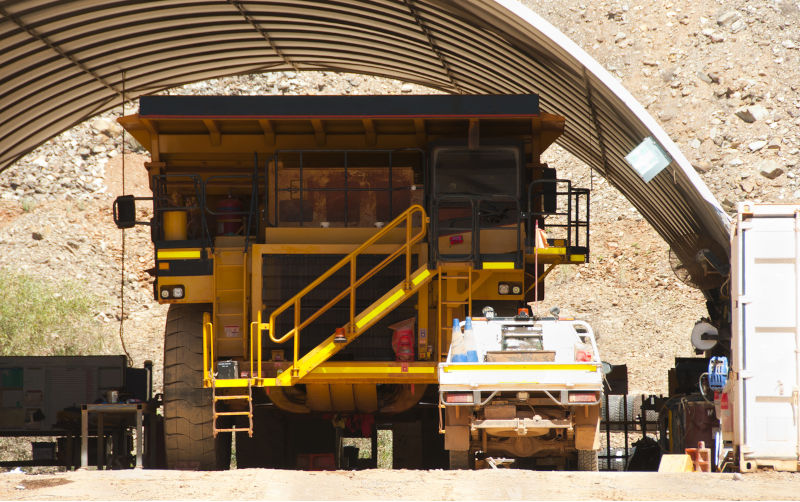Capping Australia’s biggest fossil subsidy is the productivity reform we can’t afford to ignore
August 22, 2025
Australia’s biggest fossil fuel subsidy is hiding in plain sight. The diesel Fuel Tax Credit (FTC) scheme — a taxpayer-funded rebate mostly benefitting big miners — is costing Australians tens of billions, fuelling emissions, and damaging productivity growth.
Critically, it disincentivises miners from investing in clean energy to power their operations.
This federal FTC scheme rebates the full fuel tax of 51.6 cents per litre on high-emissions imported diesel used off-road in industry. The tax doesn’t fund roads – it’s a form of industry assistance. The oft-repeated justification by the fossil fuel lobby and some recipients, that they don’t use public roads and therefore should not pay the tax, is simply not credible.
If Australia is serious about its climate commitments, fiscal sustainability and our generational opportunity to lead as a green energy and exports superpower, this handout that pays polluters to pollute is overdue for substantive reform.
CEF proposes that companies be required to reinvest any fuel tax credits above a $50 million annual cap into clean energy diesel alternatives, or forgo these credits (top FTC recipient companies currently claim hundreds of millions of dollars in credits annually). Fortescue, a major beneficiary of fuel tax credits, fully supports our proposal.
This year alone, the scheme — a top 20 budget expense — is costing the public purse $11 billion, and this will climb to more than $13 billion a year by decade’s end.
Since the fuel tax reforms in 2007, the scheme has cost taxpayers more than $122 billion. By 2030, the bill will hit $184 billion. By contrast, according to the Australian Energy Market Operator, the total capital cost of Australia’s transition to a decarbonised, renewables-based electricity system is just $122 billion.
In other words, in the 23 years from 2007 to 2030, Australia will spend 50% more on the diesel fossil fuel subsidy than on transitioning our energy system to renewables by 2050.
The biggest beneficiary is the mining sector, which has received $57.5 billion in rebates since the scheme began. Absent reform, this figure is set to exceed $84 billion by 2030.
Industrial diesel use is increasing. From financial year 2023 to 2024, diesel consumption among the 15 top claimants — predominantly iron ore and coal miners — rose by 440 million litres, with FTC claims growing by $670 million, up 29%.
These companies collectively burned nearly six billion litres of diesel and emitted 16.2 million tonnes of CO2 in this period. In total, the FTC scheme has subsidised more than 815 million tonnes of CO2 since its inception – nearly twice Australia’s current annual emissions.
Fortescue analysis has shown that the FTC scheme halves the post-tax return on companies’ clean energy investments and extends the payback period, acting as a major economic headwind to corporate decarbonisation initiatives that would slash industrial emissions.
That’s public money entrenching dependence on imported fossil fuels at a time when climate change is escalating, its economic, social and environmental costs are mounting, energy security — including the supply of imported oil products such as diesel — is increasingly vulnerable to geopolitical instability, and global markets are shifting to penalise high-carbon products.
Further, the scheme undermines the carbon pricing signal of the government’s flagship climate-industry emissions reduction policy, the Safeguard Mechanism.
There is a straightforward, targeted and revenue-neutral way to turn this regressive tax break into a driver of green industrial transformation of Australia’s world-leading mining industry.
Our new report, Transition Tax Incentive: Reforming Fuel Tax Credits into a Decarbonisation Tailwind, recommends that the federal government convert the subsidy into an incentive that would accelerate industrial decarbonisation.
Fuel tax credits above our proposed $50 million annual cap would be retained by the claimant company if the funds are reinvested directly into diesel displacement, such as electric haulage fleets, renewable energy generation, and other decarbonisation and electrification infrastructure for mining operations.
As for the recouped tax revenues, these could be directed into a Diesel Decarbonisation Fund to support decarbonisation of smaller-scale mining operations that are under the proposed cap.
The cap would leave farmers, road transport operators, small and medium businesses and sole traders completely unaffected.
Based on 2024 financial year figures, our “cap-and-reinvest” model would have mobilised $2.2 billion for clean capital investment by FTC recipients in a single year. If introduced in the 2026 financial year, more than $13.6 billion could be mobilised into clean investment by 2030 – without affecting the federal budget.
At its core, this is a productivity reform. Electrifying mining operations and replacing expensive and volatile imported diesel with domestic renewable energy improves efficiency, economic resilience, and competitiveness, and helps ensure our national energy security.
It replaces the burning of fossil fuels with clean, capital-intensive infrastructure that bolsters investment in future-facing industries, and positions Australia to lead in high-value decarbonised exports such as green iron – our number one economic opportunity as the world’s largest producer of iron ore.
Resistance to reform is predictable, as the status quo means taxpayers foot the bill for companies that continue to guzzle diesel. But the economic and climate case for change is clear. The diesel subsidy free-for-all is a relic of fossil-era policymaking that needs a big overhaul.
Capping the FTC is about aligning taxpayer spending with national objectives, and ensuring public money is deployed responsibly to accelerate the shift to clean, efficient, future-facing industry that will underpin Australia’s future economic security. Treasurer Chalmers’ Productivity Roundtable is a time-critical opportunity to put this front and centre.
Republished from Renew Economy, 20 August 2025
The views expressed in this article may or may not reflect those of Pearls and Irritations.

